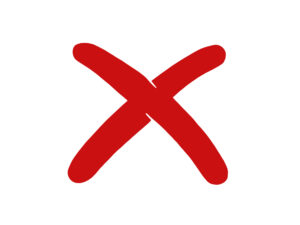Is L’Oréal an ethical brand?
A low ethical score is assigned to L’Oréal by The Good Shopping Guide; L’Oréal is a multinational corporation that owns several other well-known make up brands, including its ‘own brand’, L’Oréal. Unfortunately, as indicated by its low Good Shopping Guide ethical score in our Ethical Make Up Ratings Table, this brand currently does not adhere to our fundamental ethical standards. For this brand to qualify for our Ethical Accreditation, it must make a number of changes.
About L’Oréal
With its corporate headquarters in Clichy, Hauts-de-Seine, and its registered office in Paris, L’Oréal S.A. is a French personal care firm. It is the biggest cosmetics company in the world and has produced products focused on skin care, sun protection, make-up, perfume, and hair care.
A young French scientist named Eugène Paul Louis Schueller created the Oréale hair colour compound at the beginning of the 20th century. After creating and producing his own goods, Schueller sought to market them to Parisian hairdressers.
L’Oréal’s involvement with Nestlé
L’Oréal and Nestlé reached a deal in February 2014 for L’Oréal to purchase 8% of Nestlé’s shares for €3.4 billion. Nestlé’s ownership of L’Oréal decreased from 29.4% to 23.29% as a result, and the Bettencourt Meyers family’s ownership climbed from 30.6% to 33.2%. Since Liliane Bettencourt, the daughter of L’Oréal’s founder, asked Nestlé to invest in the company in 1974 as a means of avoiding French government action, Nestlé has held an interest in L’Oréal.
Where does L’Oréal score well?
L’Oréal receives a top rating for Environmental Report, due to its detailed sustainability commitments.
Where does L’Oréal score poorly?
Unfortunately, L’Oréal scores poorly in numerous categories. This includes Public Record Criticisms and Public Record Criticisms+, which come as a result of L’Oréal’s numerous unethical practices. L’Oréal has been publicly criticised for involvement in activities such labour rights abuses, plastic pollution, greenwashing, unsustainable palm oil consumption, and more.
How can L’Oréal improve its ethical rating?
L’Oréal’s ranking in The Good Shopping Guide is determined by 15 ethical standards. An alarming number of ethical issues, such as L’Oréal’s unethical practices, need to be clarified and addressed by this huge corporation.
Ethical performance in category
GSG score
GSG category benchmark
Ethical Rating
Environment
-
Environmental Report
Good
-
Genetic Modification
Good
-
Organic
Poor
-
Nuclear Power
Good
-
Fossil Fuels
Good
Animal
-
Animal Welfare
Poor
-
Vegetarian/Vegan Verified
Poor
People
-
Armaments
Good
-
Irresponsible Marketing
Poor
-
Political Donations
Poor
Other
-
Ethical Accreditation
Poor
-
Public Record Criticisms
Poor
-
Public Record Criticisms+
Poor
= GSG Top Rating = GSG Middle Rating = GSG Bottom Rating
